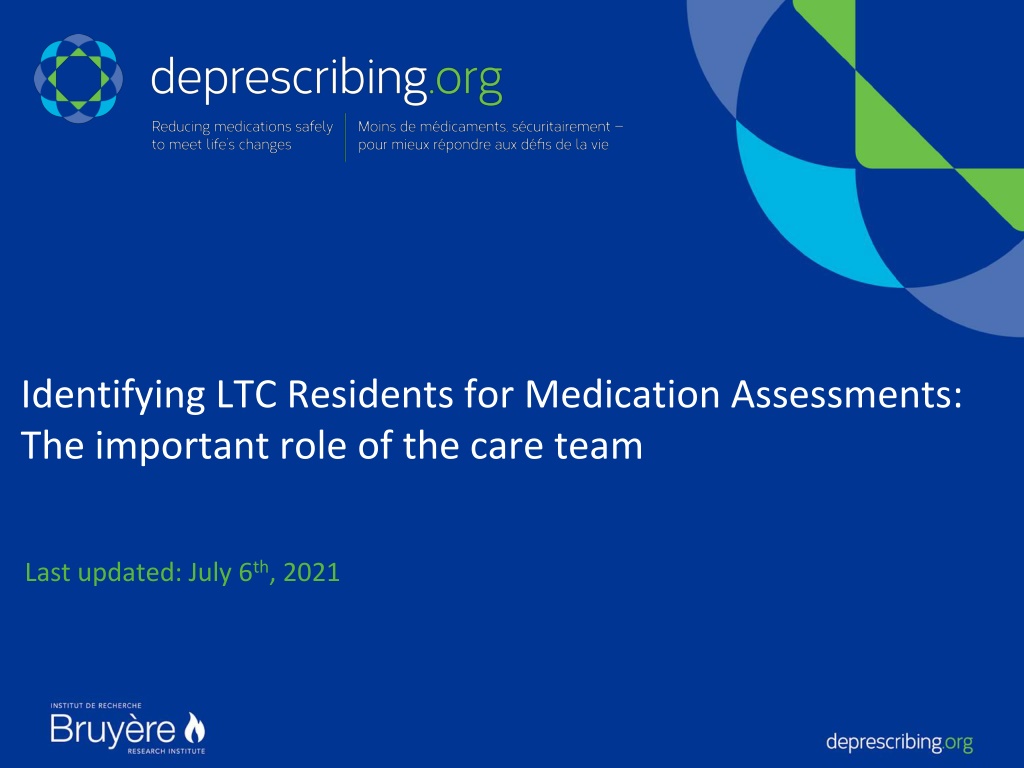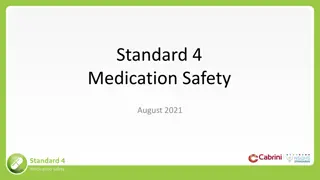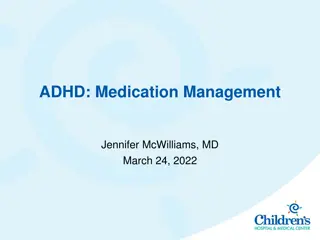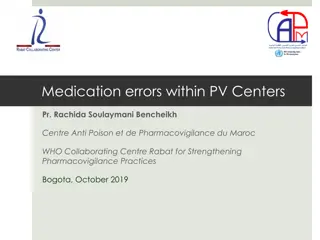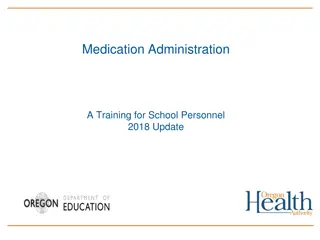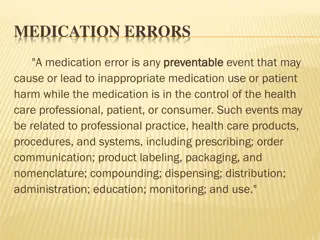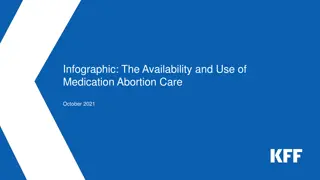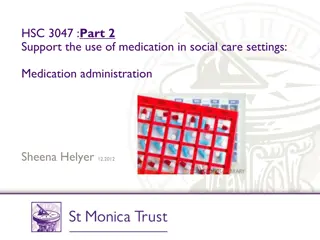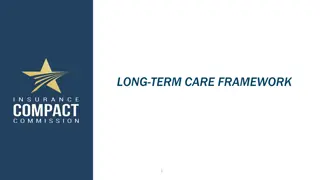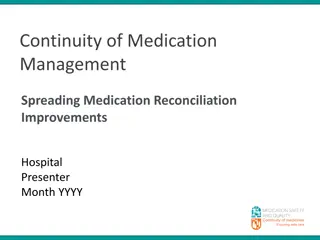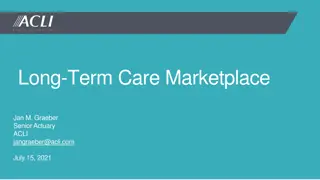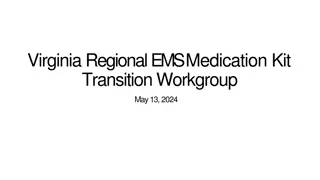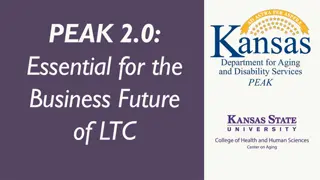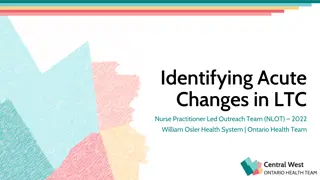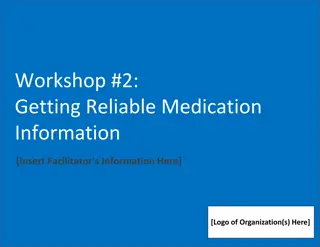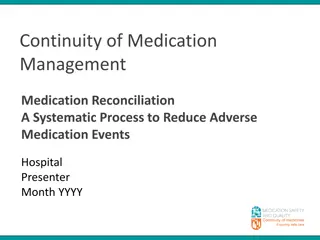Role of Care Team in LTC Medication Assessments
LTC residents require vigilant monitoring for medication assessments. Care team members play a crucial role in recognizing changes in residents' conditions and communicating findings effectively. This comprehensive guide emphasizes the importance of care team members in ensuring resident well-being and safety.
Download Presentation

Please find below an Image/Link to download the presentation.
The content on the website is provided AS IS for your information and personal use only. It may not be sold, licensed, or shared on other websites without obtaining consent from the author.If you encounter any issues during the download, it is possible that the publisher has removed the file from their server.
You are allowed to download the files provided on this website for personal or commercial use, subject to the condition that they are used lawfully. All files are the property of their respective owners.
The content on the website is provided AS IS for your information and personal use only. It may not be sold, licensed, or shared on other websites without obtaining consent from the author.
E N D
Presentation Transcript
Identifying LTC Residents for Medication Assessments: The important role of the care team Last updated: July 6th, 2021
Objectives By the end of this presentation you will be able to: Raise your profile as important members of the care team Monitor patients for signs or symptoms that would prompt a possible medication assessment Take steps to communicate your findings with other members of the care team
You Play an Integral Role in Resident-Centred Care Family Support Workers Nursing Resident s Health Prescriber Pharmacist
Important Members of the Care Team Invest a significant amount of time caring for residents Assist with important activities of daily living Provide emotional support to residents and their families This makes you able to recognize a change from the resident s baseline: Behaviour or mood Toileting habits Appetite Sleepiness Pain control
Case Example Meet Rita 85 year old female resident Uses a four-wheeled walker Enjoys going to the common area with other residents. You have been helping to take care of over the past several months
Case Example However, over the past week you have noticed some swelling in her feet, making it hard to put her shoes on and impacting her ability to walk. You have also noticed that she has been more sleepy during the daytime.
A Note About Medications Benefit Risk As people get older, they handle drugs differently in the body This can lead to more risk of side effects
4 Questions to Ask Yourself How is the resident doing today? Are there any changes that I notice? What should I be looking out for? How do I communicate this information and with who?
What to Monitor New symptoms Changes or worsening of symptoms Chronic symptoms bothersome to patient
Back to Rita more sleepy during the day How is the resident doing today? What should I be looking out for? Are there any changes that I notice? swelling in her feet
Speak Up! Say Something! Although your findings may not be medication related, it is still important to bring these concerns to other members of the care team so they can be reviewed. FOLLOW-UP Follow-up on any changes made to their care plan, including medications. Update nursing on the signs/symptoms you noticed, including any changes. SPOT Report Recognize a sign or symptom that may be medication related Inform nursing staff of your findings. This could trigger a medication assessment.
Tools to Help Available from: https://www.deprescribing.org/deprescribing-in-ltc- framework/Identifying-Residents-Infographic/
Back to Rita You report your concerns to the nurse Nurse alerts physician Turns out medication was started last week to help with nerve pain Medication is stopped and feet swelling and sleepiness go away You let the nurse know Rita s symptoms have gone away
Check-in 1. As a care team member, what should you monitor for? New symptoms Changing or worsening symptoms Chronic symptoms that are bothersome All of the above 2. What should you do when you notice a change in a resident? Say nothing Flag your concerns with nursing Hope the symptom goes away I am not sure a. b. c. d. a. b. c. d.
Final thoughts You are an important member of the care team Use the tools available to you Be the eyes, ears and voice for the ones you care for
Group discussion about what happens at your LTC home How would you report a change you notice in a resident you care for? What challenges do you anticipate? What are some possible solutions? Do you have any brief experiences to share?
Acknowledgements This presentation was created by the Bruy re Deprescribing research team in conjunction with LTC stakeholders, PSWs and PSW educators It is in draft format For questions, comments or concerns, please contact deprescribing@bruyere.org
